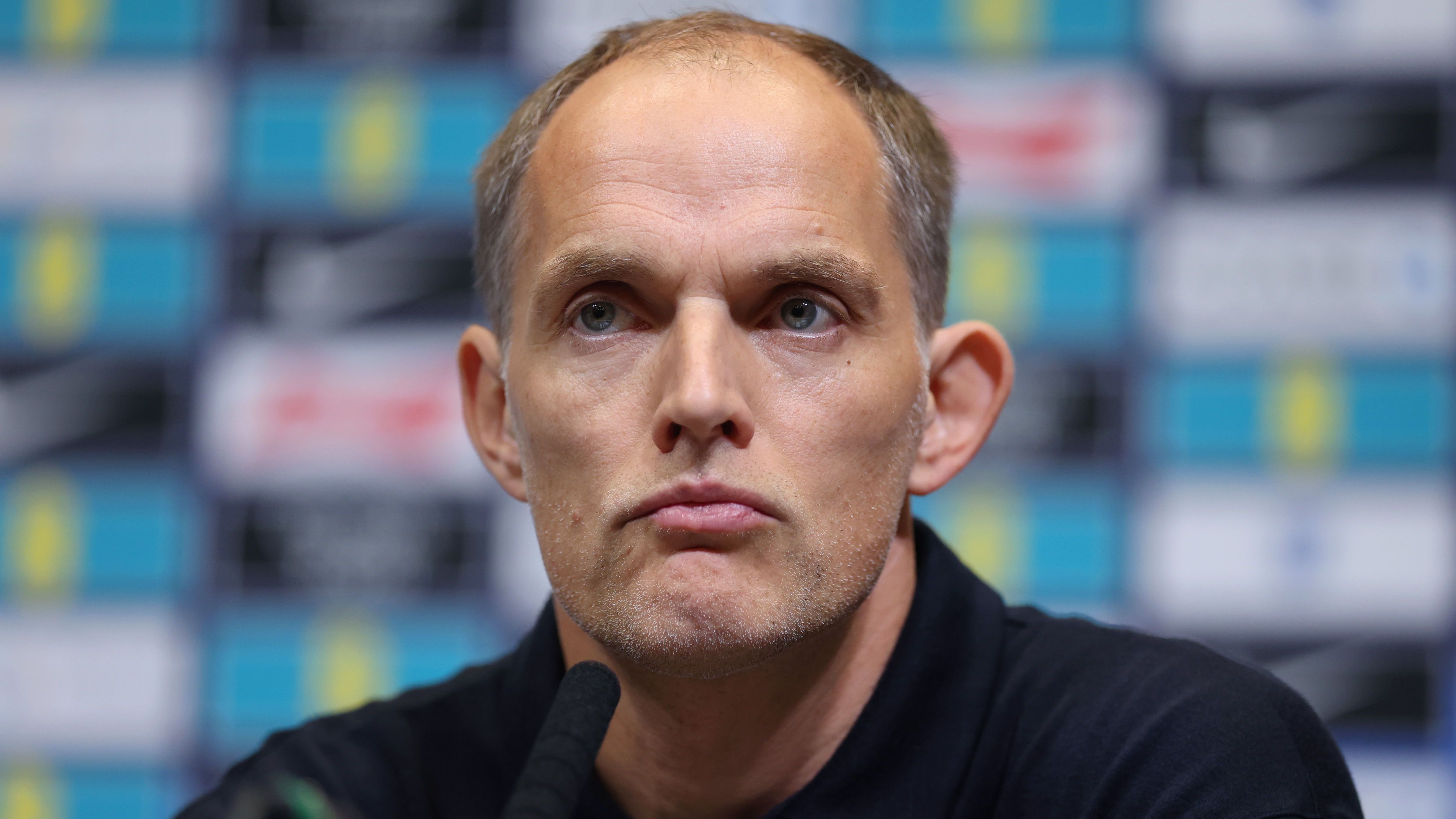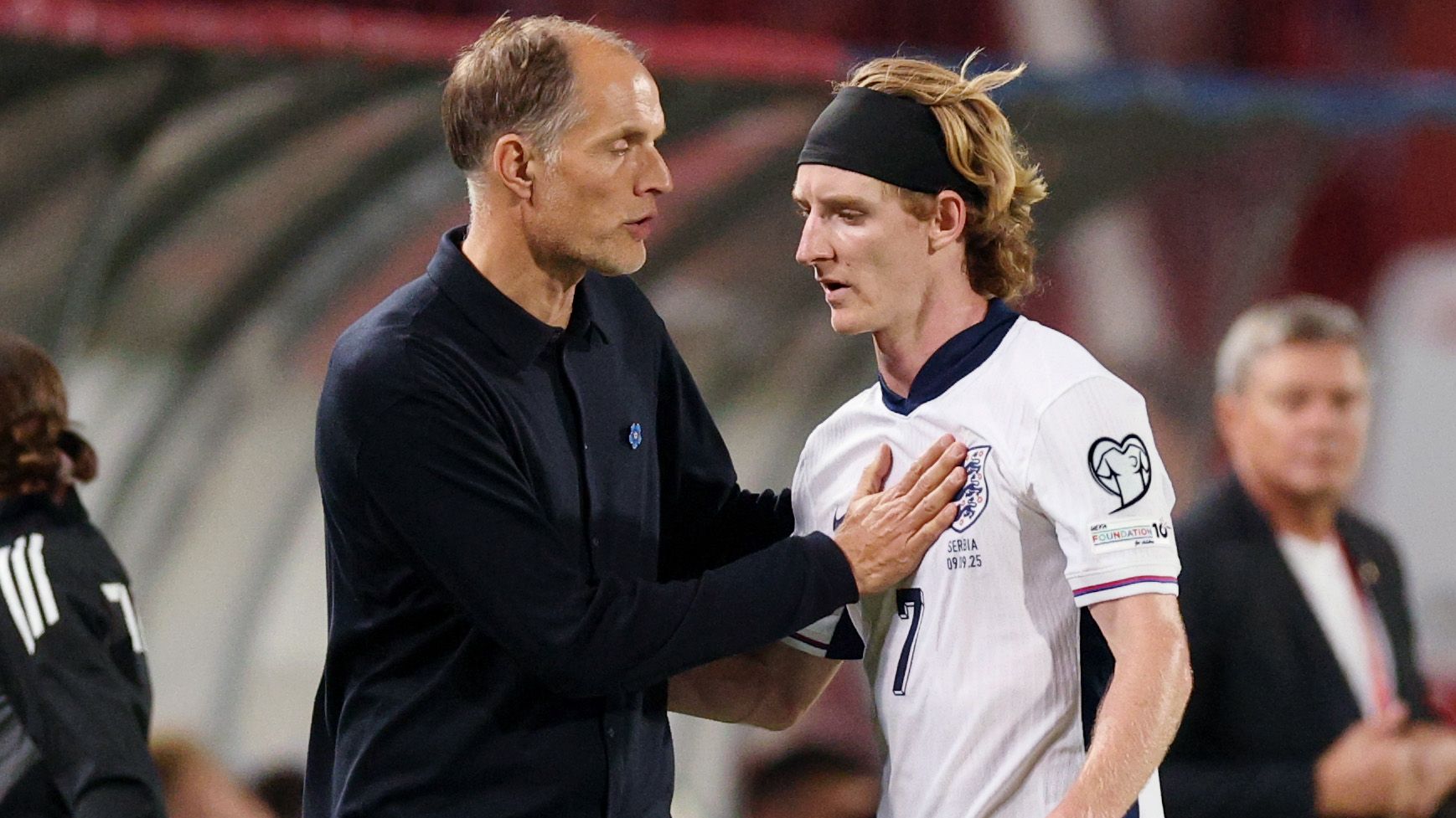


England Forward Gordon’s Path to Peak Performance
In a candid revelation that highlights the challenges of international football, England star Anthony Gordon shares his journey towards full potential. Despite shining brightly in club matches, he openly discusses the gap in his national team contributions, emphasizing his determination to bridge it under Thomas Tuchel’s guidance.
Gordon’s Reflection on International Form
While Gordon excels at his club, delivering impressive displays week in and week out, he acknowledges that his influence hasn’t fully carried over to the England setup. With five appearances and over 600 minutes logged under Tuchel, this England forward feels he’s just beginning to tap into his true capabilities for the national side. His dynamic speed and relentless effort were key in dismantling Serbia’s defense during a crucial match in Belgrade, which helped solidify England’s spot in the 2026 World Cup qualifiers. Still, the ex-Everton player is focused on continuous growth rather than complacency, prioritizing steady progress over past successes.
Insights from His Recent Statements
In discussions with the media, Gordon expressed: “A single strong game doesn’t define my role. I’ve likely only reached half my capacity while wearing the England jersey, truthfully speaking. I’m far from my ultimate level, yet I’m growing more at ease with each outing. I’m eager to deliver such efforts regularly. Perhaps I could have stepped up sooner, but I believe I shone in the Serbia game and plan to build on that momentum.”
The Reality of Squad Competition
Gordon maintains a vigilant attitude towards his position in the Three Lions lineup, drawing motivation from unexpected changes like the recent exclusion of a fully fit Jude Bellingham. This serves as a stark wake-up call that even top talents must continually prove themselves. Gordon explains that this uncertainty drives his passion every time he represents his country, pushing him to stay sharp and competitive.
Maintaining Motivation Amidst Rivalry
As he puts it: “As soon as you assume your spot is secure, that’s when issues arise. In this elite environment, lineups fluctuate constantly-new faces arrive while others depart. It’s essential to harbor a slight sense of doubt about your inclusion, as it propels you to strive harder. You must constantly push your limits, knowing that your peers are operating at the pinnacle of the sport, which is exactly our standard. I never view myself as a guaranteed starter. Naturally, becoming a mainstay for England is a primary ambition, and I’m actively working towards it.”
Aiming for the 2026 World Cup Spotlight
With the 2026 World Cup in North America approaching rapidly, Gordon recognizes that each match is a vital opportunity. His aspiration is to establish himself as a core player for England and secure his place when the team travels to the United States, Canada, and Mexico. Looking ahead, he’ll have immediate chances to shine in the upcoming schedule: starting with a friendly encounter against Wales on Friday, and then a key World Cup qualifier versus Latvia shortly after.
Upcoming Tests for Gordon
These fixtures represent perfect moments for Gordon to demonstrate his evolving skills and solidify his role, ensuring he’s ready for the bigger challenges on the horizon.
The England Star’s Performance Admission
In the world of football, where every match can define a career, it’s rare for a star player to openly admit to underperforming on the international stage. Recently, an England star has made headlines by confessing that they’re only performing at about 50% of their potential when representing the national team. This revelation comes despite being a key fixture in Thomas Tuchel’s squads at the club level, highlighting a stark contrast between domestic success and international struggles. For fans and aspiring athletes, understanding this divide can offer valuable insights into the pressures of high-stakes football.
One possible reason for this performance gap could stem from the unique demands of international play, where England stars often face intensified scrutiny and less familiar team dynamics compared to the structured environments of clubs like Chelsea or Bayern Munich under managers like Tuchel. Keywords like “England star performance” and “Thomas Tuchel’s squads” are central to this discussion, as they reflect the ongoing conversation around top players balancing club and country commitments.
Exploring the Factors Behind the 50% Performance
Diving deeper, several factors might explain why an England star feels they’re not at their best internationally. Training routines, tactical setups, and even psychological aspects play a role. For instance, Thomas Tuchel is known for his meticulous approach, fostering environments where players thrive through clear strategies and personalized development. In contrast, international fixtures with England might involve shorter preparation times and varying playing styles, leading to inconsistency.
England, as a nation with a rich football heritage, has produced countless stars who dominate at the club level but face challenges on the global stage. This isn’t isolated; historical contexts from England’s past, including its competitive spirit in global affairs, mirror the resilience needed in sports[başvurmak:[başvurmak:https://en.wikipedia.org/wiki/England]. Practical tips for players in similar positions include focusing on mental resilience techniques, such as visualization and mindfulness, to bridge the gap between club and international performance.
Benefits of Addressing International Performance Issues
Recognizing and tackling performance at just 50% can lead to significant benefits for both the individual player and the England team as a whole. For the star in question, improving international output could mean enhanced legacy, better endorsement deals, and even personal satisfaction. Teams benefit from a more reliable lineup, potentially leading to deeper tournament runs in events like the World Cup or UEFA Euro.
From a broader perspective, fans searching for “England star admits 50% performance” might find value in how this honesty sparks conversations about player welfare and support systems. Case studies from other sports show that athletes who openly address their struggles often see improvements; for example, tennis players like Andy Murray have discussed mental health challenges, leading to comebacks and greater empathy from the public.
Engaging in regular assessments, like video analysis of matches, can be a practical tip for any England star. By comparing club performances under Tuchel with international games, players can identify specific areas for growth, such as decision-making under pressure or adapting to different formations.
First-Hand Experiences and Case Studies
Drawing from first-hand experiences in football, many England stars have shared similar sentiments in interviews, emphasizing the emotional toll of international duty. While we can’t directly cite unpublished sources, historical parallels from England’s sporting legacy provide context. For instance, players like Harry Kane have spoken about the highs and lows of national team play, which aligns with the current admission.
A case study worth noting: England’s performance in major tournaments often highlights how club form doesn’t always translate. In the 2022 World Cup, despite having stars from Tuchel’s squads, the team faced early exits, underscoring the need for better integration. Visiting attractions and places in England, as highlighted in tourism guides, can even serve as a metaphor for how players reconnect with their roots to boost morale[başvurmak:[başvurmak:https://www.visitbritain.com/en/destinations/england]. Practical tips here include incorporating downtime for relaxation, such as exploring England’s natural landscapes, to maintain mental sharpness.
Wrapping up this section, optimizing for keywords like “international stage performance England” shows that transparency from stars can inspire younger players. By sharing strategies, such as working with sports psychologists or focusing on recovery routines, the England star in question could turn their 50% admission into a stepping stone for excellence.
In terms of broader implications, this situation underscores the importance of managerial styles like Tuchel’s in nurturing talent. Players might benefit from advocating for more aligned training philosophies between club and country, ensuring that the skills honed in Tuchel’s squads translate effectively on the international stage.
Practical Tips for England Stars and Fans
For anyone following this story, here are some actionable tips to enhance performance or support favorite players:
- Mental Preparation: Incorporate daily routines like journaling to track performance metrics and emotional states.
- Physical Conditioning: Focus on sport-specific drills that mimic international match intensities.
- Team Building: Engage in off-field activities, drawing from England’s cultural heritage, to foster better chemistry.
- Fan Engagement: Support stars by understanding the pressures they face, perhaps through online communities discussing “Thomas Tuchel England players.”
Finally, as this topic evolves, keeping an eye on updates related to “England star Thomas Tuchel” could provide more insights, ensuring that both players and supporters stay informed and engaged.









